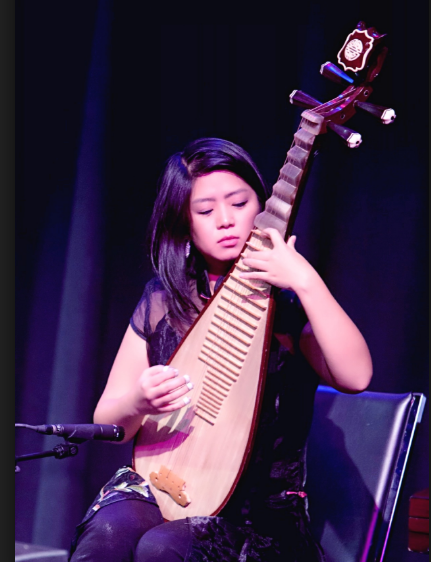The Institute for Asian Studies is starting off the fall term with a bang, hosting two traditional events reaching thousands of years into the cultural past of Korea and China. The Korean traditional music and dance, “The Peace of Korea,” takes place at 4 p.m., Sept. 25 in Lincoln Performance Hall. The dance will be performed by the Oregon Korean Performing Arts.
The second event, a “Music of China” concert sponsored by the Confucius Institute at PSU, will feature two popular instruments, the pipa and guzheng. The concert takes place at 7 p.m., Oct. 5 in Lincoln Hall.
Coordinator Martha Han has been a member of the OKPA for six years. OKPA has been a nonprofit organization since 2013, yet has been active since 2007. The group is made up of multiple generations of Koreans who take pride in their culture and seek to educate the public of their nation’s significant music and dance culture.
“While we greatly value being Americans, we also wanted to keep our Korean heritage and roots strong,” Han said. “Korean traditional dance is a big part of that reality.”
With help from OKPA Director and Instructor Seung Hee Ji, Han and OKPA have traveled to countless universities and towns to spread their dance. “Korea has 5000 years of history, and most of our traditional Korean dances and drumming originated from ancient shamanistic rituals thousands of years ago,” Han said.
Korean dance has a rich history, which the OKPA try to convey with their dance performances. “We can classify Korean dances into four types: court, folk, sacred and modern,” Han said. “OKPA members have focused on traditional court and folk dances and drumming.” The members are consistently learning more about their culture.
Director of the Institute for Asian Studies Suwako Watanabe is also excited for more people to learn about Korean culture through the art of music and dance. “The traditional art form in Korean culture and the professional quality of the performers are extraordinary and incomparable,” Watanabe said.
Watanabe has been immersed in the Asian culture well beyond her 25 years of teaching, making her an excellent member of the Department of World Languages and Literatures. She hopes that this performance will help inspire PSU students and the general public. “Audiences can learn about and feel the long tradition of the Korean performing arts that are still maintained and passed on from generation to generation,” Watanabe said.
The “Music of China” concert is also a celebration of distinctive culture. Director or CIPSU Professor Jian Wang is eager for the public to hear the music.
“The concert is part of our celebration of Global Confucius Day, which is celebrated around the world,” Wang said. “This year commemorates the 12th anniversary of the Confucius Institute program on Sept. 26.”
Both the pipa and guzheng are traditional Chinese instruments which will be the prominent features of the concert. The pipa will be played by the internationally renowned artist Yi Zhou and the guzheng will be played by Ruisi Li, both of whom are exceptional players in the Chinese community. “We hope our audience will enjoy the music and get a feel of how the pipa and guzheng music could convey sentimental thoughts and a high degree of inner power through the instruments,” Wang said.
Wang, much like Han, has confidence that PSU students and the public will appreciate the hard work of the artists and the overall nature of the event. Wang has high hopes people will see the individuality of the music and “enjoy the beauty of the unique musical sound, and to have a better understanding of the eastern philosophy through Chinese classic music, which is integrated into Chinese culture and lifestyle.”
Both events are located in PSU’s Lincoln Hall. Tickets for the Korean dance are $12 for PSU students and $15 for general admission.
The “Music of China” is free and open to the public. Free tickets can be reserved in advance at the PSU Box Office.
Editor’s note: This article initially listed the artist’s name as Zhou Yi. It has been corrected to Yi Zhou. The word “infamous” was misused and has been replaced with phrasing that more accurately reflects Zhou’s accomplishments. The Vanguard regrets the error.







The Chinese pipa player Yi Zhou is FAMOUS both inside and outside of China! Who gave you the idea she is “notorious”? Or your writer simply don’t know ENGLISH?!
By the way, the pipa player’s name is Yi (first name) Zhou (last name), just as the guzheng player’s name is Ruisi (first name) Li (last name).
Thank you for bringing this to our attention. The error has been corrected.
So the pipa player Yi Zhou is still “notorious” just because your writer doesn’t know how to write in English?!
Thanks for responding to my “complaints” and sorry for my harsh word for your student writer. You probably want to remove my last comment (and this one, too) because it was written at 1:55pm, before you actually removed the inappropriate word for the pipa player.
To complicate things a bit, the renowned Chinese pipa player 周懿 (Zhou Yi)seems prefer her name appearing in Chinese convention: last name ahead of first name instead of the English way.